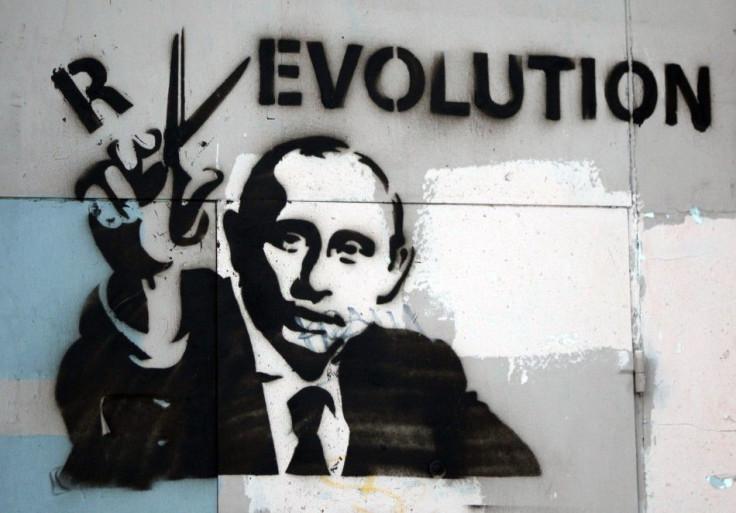The Comeback That Isn't: Putin To Revamp Russian Economy, US Warned Against Interference

Among the flurry of decrees Vladimir Putin issued after returning to the presidency for a historic third term were calls for faster privatization and government-sponsored boost in capital investment and closer ties with the US, based on equality, non-interference in internal affairs and respect for one another's interests.
Responding to the calls for a new economic policy to reduce the nation's overdependence on energy exports, Putin has set in motion measures to raise investment from the current 20 percent to 25 percent of the GDP in 2015 and to create 25 million high productivity jobs by 2020. He has also called for a 50 percent increase in labor productivity by 2018, and 30 percent increase in the share of high tech products in the GDP, aimed at shrinking Russia's oil dependency, Reuters reported.
Putin, who completed two successful presidential terms prior to becoming the prime minister during the presidential term of Dmitry Medvedev, was sworn in while riot police in Moscow were suppressing protests against his third term after a controversial election victory.
Despite his stance against the US domination in international diplomacy, Putin has been regarded as a president who was prudent enough not to increase the defense budget even when cash flows from oil exports between 2003 to 2007 turned budget deficits into surpluses - a measure which largely insulated the Russian economy during the global financial meltdown that adversely affected the US and the EU.
However, since then a lot has changed domestically, and Putin no longer has the luxury of unabated internal support. If he tries to pull off the common political gimmick of gaining public trust by fighting a common enemy, providing fodder for tensions between Washington and Moscow, the defense expenditure is sure to eat into Russian cash reserves.
Putin has always remained skeptical of Western interests in supporting the Arab Spring. Warning against a NATO military intervention in Syria, he earlier said that the West had backed Arab Spring to advance its interests in the Middle East, and that Russia is being targeted the same way.
He has already endorsed rebuilding Russian military, saying that Moscow is being pushed into action by the US and NATO missile defense policies.
A global balance of forces can be guaranteed either by building our own missile defense shield -- an expensive and to date largely ineffective undertaking -- or by developing the ability to overcome any missile defense system and protect Russia's retaliation potential, which is far more effective, Putin wrote in the Foreign Policy Magazine in February. Russia's military and technical response to the US global missile defense system and its European section will be effective and asymmetrical.
However, going by Putin's past record in policy-building, he may opt to regain his favorability, focusing on domestic issues rather than by indulging in a tug-of-war with the US, especially when the US thinks that one Cold War was quite enough.
This probably is the reason why one of the presidential decrees signed immediately after the inauguration of Putin's third six-year term included one which sought to bring bilateral cooperation with Washington to a truly strategic level.
However, political pundits expect certain amount of bumpiness in the relations between the US and Russia, which had improved during the term of Putin's protégé Medvedev.
Russia, along with China, was responsible for thwarting the NATO's plans to intervene in the bloody uprising in Syria by vetoing the United Nations Security Council (UNSC) resolutions.
Referring to the Russian and Syrian situations, Putin warned that Moscow would counter attempts to use human rights concepts as an instrument of political pressure and interference in the internal affairs of states.
He has also called for the integration of members of the Commonwealth of Independent States and has reiterated plans for a Eurasian Economic Union by 2015.
Notwithstanding the fact that Putin's election victory has had serious implications on the state of democracy in Russia, his victory is expected to change little.
Putin, in a sense, never left, CNN's Fareed Zakaria wrote. Putin was running the government and the economy on a day to day basis. While he had ceded the presidency, and therefore foreign policy, to Dmitri Medvedev, it was really a charade -- Putin was behind most of the most important decisions anyway.
© Copyright IBTimes 2024. All rights reserved.






















